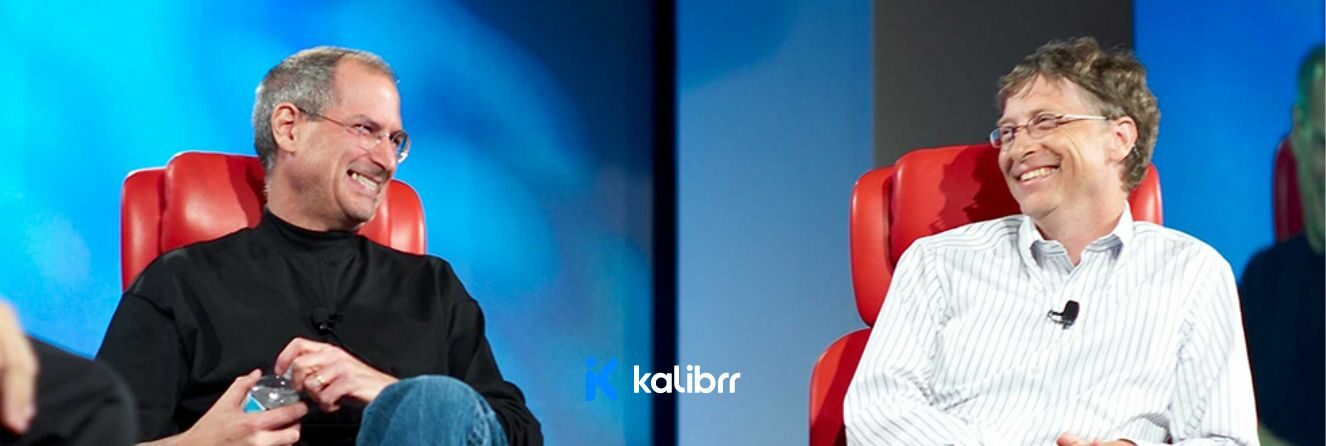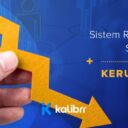This Is How The Biggest CEOs Hire The Right People

Being a recruitment professional isn’t simply about testing applicants, or filling in company vacations as fast as possible. It takes years of experience and a certain kind of intelligence to separate the wheat from the chaff. It also requires a clear vision of what kind of employee is best not only for the current vacancy, but for the entire company as well.
We’ve compiled a list of insights from the big CEOs of the world on how to recruit the right people for your company. While these big names probably don’t have time to focus on every little thing in the business, getting the right talent is still a priority for them.
TOPICS
Steve Jobs
“I noticed that the dynamic range between what an average person could accomplish and what the best person could accomplish was 50 or 100 to 1. Given that, you’re well advised to go after the cream of the cream. That’s what we’ve done. You can then build a team that pursues the A+ players. A small team of A+ players can run circles around a giant team of B and C players. That’s what I’ve tried to do. “
When the late Apple CEO Steve Jobs said this in an interview with BusinessWeek in 1998, he was talking about the difference between the performance between the best and the average iterations of products.
“For example, if you were in New York and compared the best taxi to an average taxi, you might get there 20 percent faster. In terms of computers, the best PC is perhaps 30 percent better than the average PC, ” Jobs said. “There is not that much difference in magnitude. Rarely you find a difference of two-to-one. Pick anything. ”
But when it comes to recruiting the right talent for your company, it pays to recruit the best of the best. In the highlighted quote above, Jobs believes an “A+ player” can be twice as productive as regular or even good hires. But one single A+ player can’t do it alone, of course.
“Some people can do one thing magnificently, like Michelangelo, and others make things like semiconductors or build 747 airplanes — that type of work requires legions of people. In order to do things well, that can’t be done by one person, you must find extraordinary people. ”
Mark Zuckerberg
“I will only hire someone to work directly for me if I would work for that person.”
This is Facebook CEO Mark Zuckerberg one most important rule in hiring people to work for his company. He shared this to the audience of the fourth installment of his Q&A With Mark held in Barcelona in early 2015.
“In an alternate universe, if things were different and I didn’t start the company, I would be happy to work for that person,” Zuckberg elaborated. “Or if Facebook just disappeared and I had to go find something else to go do, then I’d be happy to go work for that person.”
Zuckerberg’s rule highlights two things to look out for when choosing to hire a candidate.
First, consider the values and character of the candidate. Do you think the candidate will be committed to what your company does? Will he/she fit the culture your company has established? The candidate’s resume might be impressive, but the candidate as a person might not jive well with your working environment.
Second, hire someone who you will respect as a colleague, whether the applicant will be filling in a subordinate or an executive position in the company. Otherwise, you might end up dealing with a bigger problem than just underperformance or delinquency.
Jack Ma
“Don’t hire the most qualified, hire the craziest.”
Jack Ma, the founder and former CEO of the Alibaba Group, once said this bit of cavalier recruitment wisdom in conversation with fellow billionaire Richard Branson, the founder of the Virgin Group.
“That sounds [like] a smart strategy to me,” Branson said of Ma’s statement. “You need people with different ideas to make a company tick, not just a bunch of yes men.”
While qualifications do count — Ma stresses the importance of hiring people who have superior skills — it takes crazy people, people who are willing to go against what’s been established, to push for innovation. Skills can give you the expertise your company needs, but not necessarily the minds to take it to the next level.
It’s not surprising then that the 51-year-old Ma, after years of building a company worth at least $21 billion, is willing to start transitioning towards a younger (and in the eyes of many older people, “crazier”) generation of Alibaba leaders.
“The internet is a world for young people,” Ma said in 2013. “We want to give leadership to ’70s- and ’80s-era colleagues, because we believe they are much better than we are at understanding the future.”
Bill Gates (Maybe)
“I choose a lazy person to do a hard job. Because a lazy person will find an easy way to do it.”
While there isn’t any clear proof Microsoft co-founder Bill Gates himself said these words (according this source and this website) the quote is strangely often attributed to him. Still, there is some wisdom in this maxim that may seem, at first, to promote laziness.
Being “lazy” means finding the quickest (and perhaps most efficient) way to get things done, giving 100% of your focus for a project (because you procrastinated on it), and even simply being too lazy that you defeat your own laziness.
However, simply hiring the laziest person you can find will obviously lead to disastrous results. This is not the point of the quote.
The quote is emphasizing the importance of hiring someone who is naturally inclined to find the fastest and most efficient way of accomplishing a task, as opposed to hiring a hard worker who prioritizes doing as much work without necessarily thinking about the best methods of finishing them.






No comment available yet!